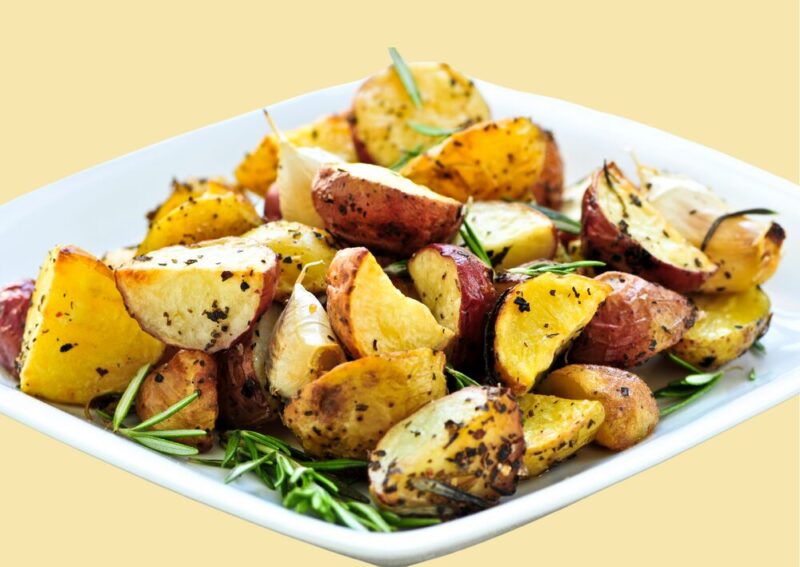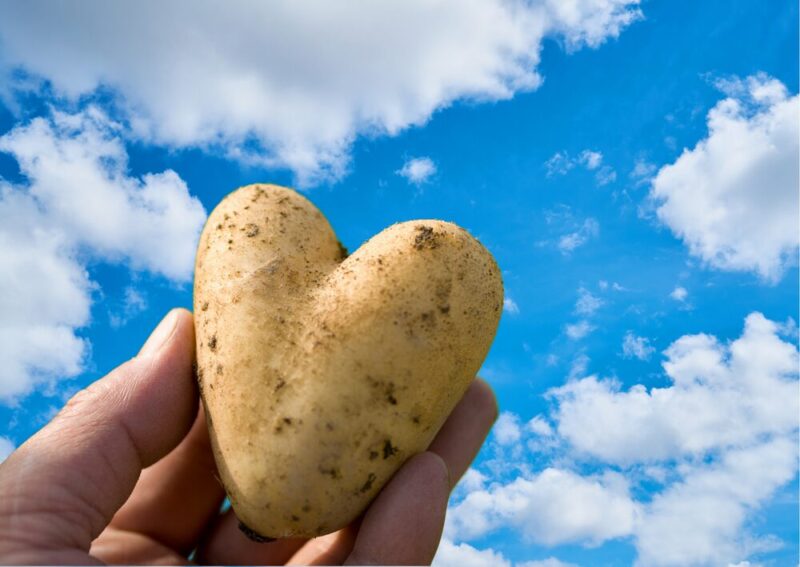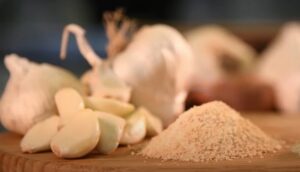To cut it to the chase – yes, technically you could eat it, but you really shouldn’t. While a few bites of slightly undercooked potato might not seem like a big deal, there are several reasons why you should avoid it.
Potatoes contain a group of natural compounds known as glycoalkaloids, with solanine being the most notable. While these compounds serve as the potato plant’s natural defense against pests, they aren’t as friendly to humans, especially when consumed in large amounts or when the potato isn’t fully cooked.
In this article, we’ll explore why undercooked potatoes cause these issues and why it’s totally worth the extra time to make sure they’re fully cooked.
What Happens When Potatoes Are Undercooked?
When potatoes are undercooked, they don’t just taste off—they can also cause a range of unpleasant and even harmful effects on your body.
1. Starches Won’t Go Down Easily

One of the primary issues with eating undercooked potatoes is the state of the starches within them. Potatoes are dense with starch granules that need to be broken down by cooking to become digestible. When a potato is undercooked, these starches remain in their complex form, which your digestive system struggles to break down.
2. The Hidden Danger of Solanine
Remember that glycoalkaloid we mentioned earlier, solanine? This compound is naturally present in all potatoes but is typically at levels low enough that they’re harmless when the potato is properly cooked. However, when potatoes are undercooked, solanine remains more potent. Solanine can cause a variety of symptoms, including nausea, vomiting, diarrhea, and abdominal pain.
In more severe cases, solanine poisoning can lead to neurological issues like headaches, dizziness, and confusion. The effects depend on the amount of solanine ingested, but it’s clear that this is not something you want to risk by eating undercooked potatoes.
3. Anti-Nutrients
Undercooked potatoes contain anti-nutrients, such as lectins and trypsin inhibitors, which interfere with your body’s ability to absorb essential nutrients from the food you eat. These compounds can disrupt the digestive enzymes in your stomach, leading to a decreased ability to absorb proteins and other vital nutrients.
While the cooking process reduces these anti-nutrients to safe levels, undercooked potatoes leave you exposed to their negative effects.
Why You Should Always Fully Cook Your Potatoes
Cooking potatoes doesn’t just make them safer to eat—it also makes them more nutritious. Heat breaks down the starches, making them easier for your body to digest and convert into energy. Cooking also enhances the bioavailability of some nutrients, meaning your body can absorb more vitamins and minerals from a cooked potato than from a raw or undercooked one.
For example, the vitamin C content in potatoes is better preserved when cooked properly, and the cooking process helps release antioxidants that fight free radicals in your body.
In short, cooking your potatoes unlocks their full nutritional potential, making them a valuable part of a balanced diet.
Taste and Texture Matter
Let’s not forget the culinary aspect. Properly cooked potatoes are creamy, soft, and full of flavor. Undercooked potatoes, on the other hand, can be unpalatably crunchy, bitter, and even slightly toxic. No one wants to bite into a hard, underdone potato that tastes off.
Avoiding Digestive Distress
The digestive discomfort caused by undercooked potatoes is not something to take lightly. The bloating, gas, and cramps are your body’s way of telling you that it’s struggling to process what you’ve eaten. Cooking potatoes thoroughly helps avoid these issues by breaking down the complex starches and neutralizing any harmful compounds.
The Fork Test
One of the simplest ways to check if your potatoes are fully cooked is the fork test. Insert a fork into the potato—if it slides in easily and the potato feels soft throughout, it’s done. If there’s resistance or the fork doesn’t glide in smoothly, the potato needs more time.
Cooking Methods That Work
| Cooking Method | Description | Temperature | Cooking Time | Tips |
| Boiling | Boils potatoes evenly by submerging them in water. | / | 15-20 minutes | Cut into even-sized pieces for uniform cooking. |
| Baking | Bakes potatoes for a fluffy interior and crispy skin. | 425°F (220°C) | 45 minutes to 1 hour | Check doneness by piercing with a fork or knife. |
| Roasting | Roasts chopped potatoes for a crispy exterior. | 400°F (200°C) | 30-40 minutes | Turn halfway through; toss in oil and seasoning. |
| Microwaving | Quick option for cooking potatoes, especially when time is limited. | High (Microwave) | 5-10 minutes | Poke holes in the potato; flip halfway through. |
Different potato varieties cook at different rates. For example, waxy potatoes like red or new potatoes have a higher moisture content and cook faster than starchy potatoes like russets. Special Considerations – Green Potatoes and Sprouts
While we’re on the topic of potato safety, it’s important to address green potatoes and potato sprouts. These are signs that the potato has been exposed to light and has started producing more solanine.
Green Potatoes
When a potato turns green, it’s due to chlorophyll production, which in itself isn’t harmful. However, the green color is an indicator that solanine levels may be higher, especially in the skin. Eating green potatoes can increase your risk of solanine poisoning, so it’s best to cut away any green parts or avoid the potato altogether if it’s extensively green.
Sprouted Potatoes
Potato sprouts are another red flag. When potatoes sprout, the glycoalkaloid levels increase, particularly in the sprouts themselves. If your potato has sprouted, it’s best to remove the sprouts and check the potato for any green spots or an off smell before cooking.
In Summary
Potatoes are tasty and packed with nutrients, but only if you cook them right. Eating undercooked potatoes can mess with your digestion, expose you to harmful stuff like solanine, and just make your meal less enjoyable.



